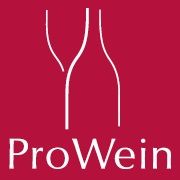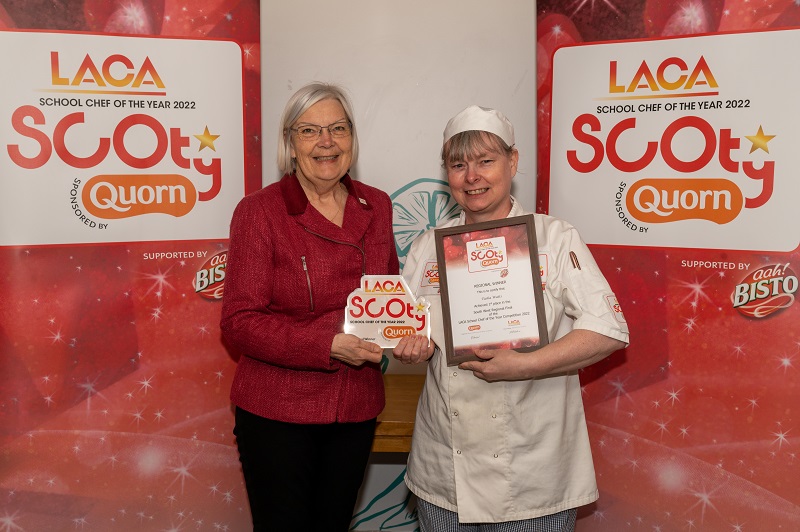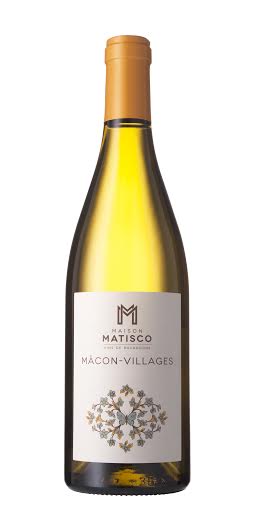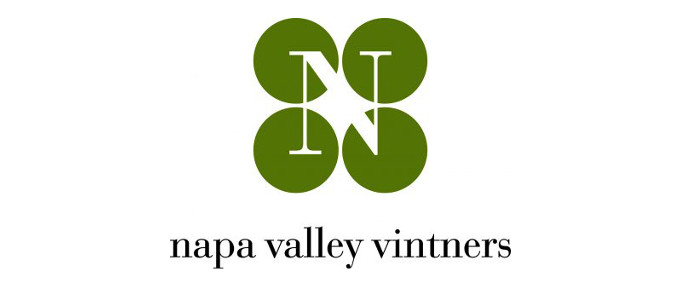The online share of wine sales has been on a constant increase. Along with books, wine was one of the first items to be sold online. Wine was already a player in the dotcom era around the year 2000. Also ProWein, the leading trade fair for wine and spirits held in Dusseldorf, Germany is registering more and more trade visitors in this segment.
Germany’s Online Wine Market
Like in online retail in general, it is hard to precisely track market volume here due to the differing measuring methods and the variety of online suppliers. Market researcher Gesellschaft für Konsumforschung (GFK) included online sales as a separate sales channel in its surveys for the first time in 20153/14 at the request of the German Wine Institute (Deutsches Weininstitut – DWI). According to data collected by the GFK in Germany in 2014, 5% of total turnover for wine was generated online. In absolute terms this corresponds to some 45 m liters of wine worth some Euro 300 million. The average price for a liter of wine online at Euro 6,68 is comparable to price levels in the specialist retail trade and therefore significantly above the Euro 2,98 price tag in food retail, as the DWI findings show. The relatively high price is not surprising as the online market has until now been primarily used by companies with ranges focused on the higher end category of “Euro 5 a bottle”. The total volume of wine retailing for over Euro 5 in bricks and mortar and online stands at about Euro 1 billion, according to calculations of the University of Geisenheim. The online sales in this segment are estimated by market insiders to stand at about Euro 150 million.
Online Share set to Rise
There is no doubt that the online share will continue to rise. Online sales of consumer goods in general have been growing unabated for years. One segment after the other is opening up to online trade. The wine market is not excluded from this development. For instance, a representative study published in early October 2015 by the Wine Business Management department at Heilbronn University found that 57% of wine buyers have already purchased one or more times online. When asked about their purchasing intentions, 73% said that they intend to order “online” or “both online and in bricks and mortar” in the future.
In the higher price segment entire range sections have migrated to the Internet. Numerous stationary and catalogue retailers have abandoned the grands crus, major chateaux and big name wine business as this segment is now situated online – sometimes also across borders. Thanks to specialist search engines the ranges and prices for buyers are easy to compare. Cross-border logistics are today arranged in such a way that placing orders abroad can even pay off for end consumers.
The entry level price segment of wines up to Euro 5 per bottle has not been interesting for suppliers until now. The profit margin achieved in this segment is not sufficient for the costing structure of most suppliers. However, for food retailers currently including wine in their range and most definitely discount outlets the margin looks different. The extent to which they manage to also sell food in larger volumes online means their customers’ shopping baskets are sure to also include wine bottles. To the question: “Would you also buy wine or sparkling wine there (where you buy food online)?” 87% of the Heilbronn survey respondents said they would order from food retailers if they had a suitable range.
This means good prospects for the REWE Group who brought their “Weinfreunde.de” wine management business to market in Summer 2015 or for food retailer LIDL who has already been massively advertising its online wine shop since the end of 2014. Early 2016 will see ALDI enter the online market in Great Britain – the first thing to be ordered there will be wine. It can be assumed that ALDI will become active on other markets after a positive test phase.
AMAZON – the world’s largest Internet retailer – has already been on the German market with its own wine range since 2010, supplemented by the wines of suppliers in the AMAZON Marketplace. It is expected that 2016 the food delivery service “AMAZON fresh” – already existing in the US since 2007 – will also launch in Germany. The entire food range will be offered here including fresh produce. Speaking at this year’s wine trade convention in Heilbronn, Dr. Kai Hudetz, expert at Cologne’s retail research institute Institut für Handelsforschung (IFH) said he expected “AMAZON fresh” to not only be competition for food retail but also to boost AMAZON wine sales.
Specialist Retailers will have to Fight
The specialist retailers on the online wine market can be roughly divided into the following categories:
Mail order retailers who are moving their businesses online. These include the market leader HAWESKO who, by its own accounts, generated online retail turnover worth Euro 72.1 million in 2014. Other providers like BROGSITTER, PRO IDEE or LUDWIG VON KAPF follow at some distance behind. On the one hand, these retailers can build upon an existing customer base that they take with them online. On the other hand, online retail is very fast-paced and requires a willingness to experiment, swift reactions and quick adjustments to the chosen course – which have not necessarily been the strong suit of mail order catalogue suppliers until now.
So-called “pure players” who only sell online. VICAMPO, WINE IN BLACK, WIR WINZER, VINEXUS or SILKES WEINKELLER are suppliers of this category. Because they have to practically start from scratch to build their customer base this business model requires considerable start-up investment. Many firms often rely on investors from outside the sector. The aim of these firms is to develop a customer base of addresses as quickly as possible and to generate sales from this. In this category the firms boasting the best future opportunities are those offering a very specialized range such as Italy specialist SUPERIORE.DE. Competition for all-rounders is not only growing due to AMAZON and Co. but also due to the new suppliers coming up now with the same or similar business model.
Stationary retailers that combine bricks and mortar and online. This group includes many classic specialist wine retailers like JACQUES‘ WEIN-DEPOT, MÖVENPICK, VINO, or RINDCHENS WEINKONTOR. Alongside chains many regionally significant retailers are also trying to serve their existing customers online in future and at the same time tap into a new customer base. Examples here include: WEIN UND VINOS, PINARD DE PICARD, KÖLNER WEINKELLER or WEINZECHE in Gelsenkirchen. Bricks and mortar suppliers have the advantage of a ready-made customer base that they can now also reach online. The opportunities here are not bad: 90% of the wine buyers surveyed in the Heilbronn survey state that they would also buy wine or sparkling wine online from their bricks and mortar retailer. Here customers attach importance primarily to reliability and convenient delivery to their homes.
The online channel is ideally included by retailers in an omni-channel strategy where customers can choose the best way for them to reach their wine in any given situation. The buzzwords here are Click&Collect, product availability info, goods reservation and same day delivery. Even if bricks and mortar retail – when done right – offers the greatest opportunities for competing for customers, it also requires huge investments in marketing, goods management and information technology. It is questionable whether SMEs can find this level of investment and whether it pays off.
Online as a shop window for winegrowers, wine estates and cooperatives
More and more winegrowers, wine estates and cooperatives are operating both a website and an online shop. As there are no figures for this, it is not possible to make any statement regarding their volume and worth. The shops are seen more as an instrument for customer loyalty: it is easy here for wine estate customers to do repeat orders on their wine.
Wishing to avoid the costs of running their own shop and at the same time tapping into the advertising power of existing platforms, many winegrowers and wine estates are now working with VICAMPO or WIR WINZER. On the other hand, vintners also consciously opt against selling on their own website so as not to compete with their specialist retail customers.
Online wine retail in Europe
Online wine retail in Denmark is still relatively underdeveloped – less than 10% of wine buyers order or have ordered online, according to market researcher Wine Intelligence. A third of Danes still drive to other countries within Europe to purchase wine.
Due to the monopoly in the other Scandinavian countries the online market is virtually non-existent. For instance, in Sweden there have been legal confrontations between the state SYSTEMBOLAGET and independent online wine retailers concerning the legality of direct deliveries to private individuals. In Norway there is an official online shop run by VINMONOPOLET. Online retailers located abroad are permitted to supply private individuals for their own consumption. This involves high taxes and duties.
In Eastern European countries the online wine market is also still in its early stages. According to forecasts by the market researchers at KPMG and Wine Intelligence, wine sales in Poland and the Czech Republic will develop very positively over the next few years. The market researchers also see great potential here for online wine sales.
According to estimates in the sector, the online share of the wine market in Austria and Switzerland stands at 3% – 5%. The main protagonists on the market are the major supermarket chains like SPAR WEINWELT in Austria or COOP and DENNER in Switzerland. In specialist retail, numerous independent retailers are trying to assert themselves on the online market. The leader in Austria is the firm WEIN&CO that is also the market leader in bricks and mortar retail. In Switzerland FLASCHENPOST.CH offers the wines of 70 large and small retailers.
The share occupied by the online wine market in the BENELUX is estimated by the Netherlands state agency CBI to stand at a low single-digit level. Due to high concentration in the retail trade – over 2,800 businesses in the Netherlands alone – online wine retail has developed less rapidly than in other central European countries. Large established wine retailers like MITRA, the specialist retailer GALL&GALL belonging to Dutch food retail group AHOLD and WIJNVOORDEEL from the BAARSMA Group are also the largest providers on the online market. BAARSMA with its branches in Belgium and Germany is, by its own accounts, among the largest online wine retailers in Europe. In 2014 LIDL also launched its online wine shop. As part of its expansion strategy WINE IN BLACK is presented with its own Dutch website and suitable logistics for the BENELUX. The Belgian online market features numerous small suppliers including established names like SAVOURCLUB and the online shop of the DELHAIZE supermarket chain.
The online wine market in France is expected to exceed the Euro 1 million mark in 2015 for the first time – according to market researchers at Kedge BS in their e-Performance Barometer now published for the fifth time. 350 specialized suppliers share this market. Online customers appreciate the wide range, the variety and easy access. Higher priced wines and wines in the premium segment are purchased more often online than in bricks and mortar retail. A series of suppliers have become particularly well established in this segment. Price-oriented suppliers like VENTE PRIVÉE or the online discounter CDISCOUNT have set up alongside the online shops of specialist retailers like NICOLAS or LIVINIA and pure players like WINEANDCO.COM or VINATIS.COM. In pole position on the online wine market are also large super and hypermarket chains like AUCHAN, CARREFOUR, LECLERC or SYSTEME U. They continue to hold their autumn “Foire aux vins” while now also operating their online wine shops. They cover the country with a network of over 3,200 Click&Collect stations. Here customers can collect the goods they have conveniently ordered online from home without long waiting times. The example of France’s Click&Collect shops demonstrates how hard it is to record data for the online wine market: do you attribute the sales generated there to the bricks and mortar or online market?
With a market worth Euro 1.4 billion, Great Britain boasts the best online wine market in Europe among the countries with no or insignificant own wine production – according to market researchers from Wilson’s Drink Report. Estimates put online wine sales (excluding restaurants) at 11% of the market. About a quarter of the consumers of alcoholic drinks use the online channel regularly. Almost all major supermarkets and department store chains like TESCO, SAINSBURY’S, WAITROSE or MARKS&SPENCER operate their own online wine shops. However, there are also a series of successful pure players and wine clubs that only sell their wines via the Internet. The innovative NAKED WINES business model with its customers forming a very strong community is famed beyond UK borders. This community is in constant dialogue with the company and winemakers, thereby influencing the range and the choice of new wines. NAKED WINES currently boasts a turnover of some Euro 70 million in Great Britain and was sold in 2015 by Germany’s WIV Group to specialist retail market leader MAJESTIC WINES PLC. On the very price-sensitive UK market the average £ 6.89 price tag is 15% above the price paid in bricks and mortar.
As can be seen in several examples, more and more online suppliers are operating across borders. Here they use the new logistics now developing due to the rapid growth of e-commerce for all types of goods in Europe. This makes it possible to also sell wine at favorable conditions across national borders. Unlike with many other goods, however, in the EU there are still very divergent legal and fiscal regulations in place for wine that complicate expansion.
Online retail is currently the most dynamic sales channel for wine and this is expected to develop into a major and established channel in all European countries in future. As the Heilbronn survey for Germany shows, wine merchants with no online shops are already now forfeiting sales among their existing customers.
About the Author:
Michael Pleitgen is the founder of Weinakademie Berlin and teaches wine business marketing at Heilbronn University in Germany







